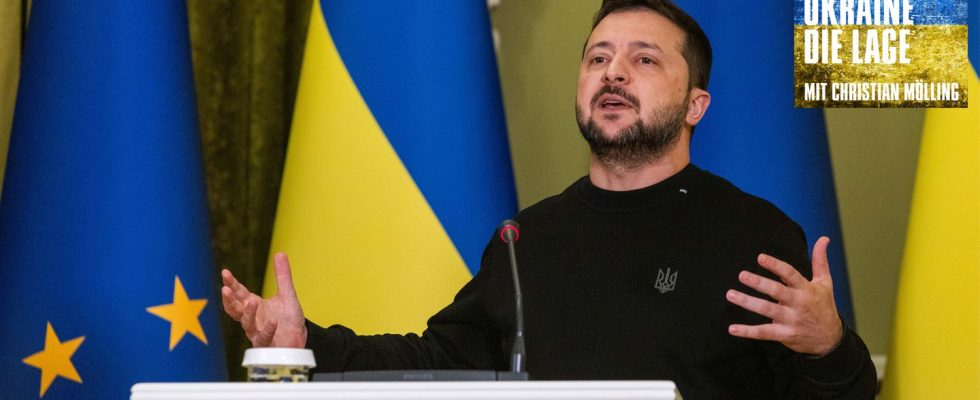Podcast “Ukraine – the situation”
Military expert Mölling: Ukraine can currently do without a presidential election
Ukrainian President Volodymyr Zelenskyj wants to postpone the upcoming elections
© Philipp von Ditfurth/dpa-ENR-Pool / DPA
The fact that Ukraine is foregoing the upcoming presidential elections is not a sign of an autocratic system, says security expert Christian Mölling.
Abstaining from elections will not end democracy in Ukraine
Mölling was critical of the fixation on elections as an expression of democratic conditions. This is “exactly the trap we have fallen into with liberal interventionism over the last 30 years.” The idea was that you just had to stabilize the situation, hold elections and then things would be democratic. “That didn’t work because democracy is something that has to be lived in everyday life.” Just as elections alone are not an expression of democracy in Mölling’s view, the second renunciation of elections is by no means synonymous with the end of democracy. Mölling said: “If you turn that around, you have to ask: Do we believe that Ukraine is a non-democratic state just because it currently has no elections?” That is simply not the case.
Career of a dictator
From the moth to Putin, the Eternal – the bloody path of the Kremlin master in pictures
The expert warned against drawing too simple comparisons between the conflicts in the Middle East and Ukraine. “It has enormous difficulties in terms of the dividing lines and the sharpness of the categories,” he said. “I can try to look at it in general – then I’m actually doing everyone an injustice.” He emphasized that it was legitimate and right to ask about violations of international law of war by Israeli soldiers. International war law is not a “law to prevent war”, but rather provides decision-makers with a kind of checklist to check whether they have done enough to minimize the consequences of their measures on the civilian population.
It’s about proportionality. When assessing violations, it is important to determine whether they are used systematically. “Does the state promote the violation of international war law as a means of war or not?” asked Mölling, referring to Israel and Russia. And added: “Then you find the difference.” In the Israeli armed forces there is “no systematic release in which murder, rape and kidnapping – as in the Russian army – are an intended means of war.” Nobody would think of deporting Palestinian children to Israel.


